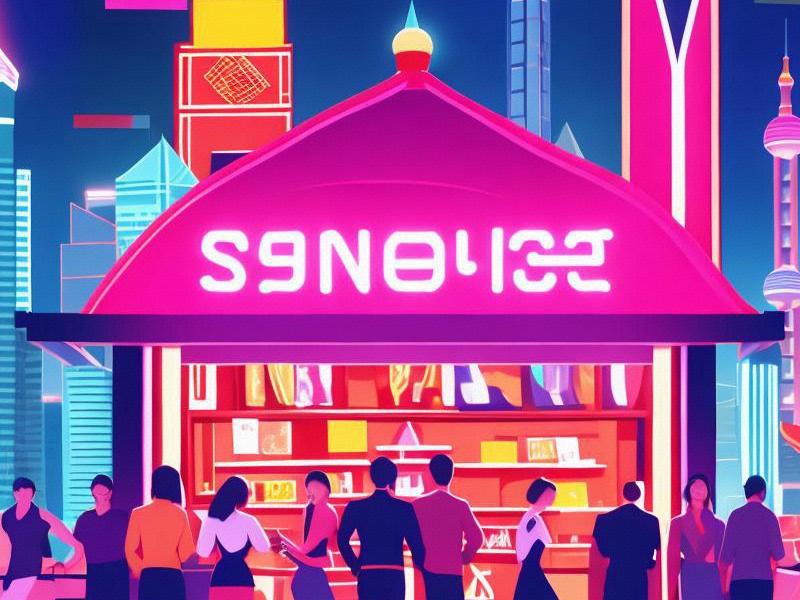This article delves into the vibrant world of Shanghai's entertainment clubs, exploring their unique blend of glamour, cultural significance, and the evolving regulatory landscape that governs them. It examines the history, current state, and future prospects of these establishments, providing a comprehensive overview of their role in the city's nightlife scene.

In the heart of Shanghai, where the neon lights of the Bund meet the bustling energy of the Pudong skyline, entertainment clubs have long been a staple of the city's nightlife. These establishments, ranging from high-end lounges to pulsating nightclubs, offer a unique blend of music, dance, and social interaction that has captivated both locals and tourists alike.
The history of Shanghai's entertainment clubs dates back to the early 20th century, during the city's heyday as a cosmopolitan hub. The Bund, with its opulent architecture and vibrant nightlife, was home to numerous clubs and cabarets that attracted artists, intellectuals, and expatriates. These establishments became symbols of Shanghai's cosmopolitan culture, blending Eastern and Western influences in their performances and decor.
Fast forward to the present day, Shanghai's entertainment scene has evolved significantly. The city has become a global center for culture, fashion, and finance, and its nightlife reflects this diversity. Modern entertainment clubs in Shanghai offer a wide range of experiences, from intimate jazz bars to state-of-the-art nightclubs featuring world-class DJs and live music performances.
One of the most notable aspects of Shanghai's entertainment clubs is their ability to adapt to changing cultural trends. In recent years, there has been a growing interest in niche and themed clubs that cater to specific tastes and interests. For example, some clubs focus on electronic music, while others emphasize live performances by local bands or international artists. This trend reflects a broader shift in consumer preferences, with people seeking more personalized and authentic experiences.
Despite their popularity, Shanghai's entertainment clubs operate in a highly regulated environment. The Chinese government has implemented strict regulations to ensure that these establishments comply with safety, health, and cultural standards. These regulations cover various aspects, including licensing, staffing, and the types of activities that can be conducted within the clubs.
上海龙凤sh419
Licensing is a critical aspect of the regulatory framework for entertainment clubs in Shanghai. Clubs must obtain permits from multiple government agencies, including the Public Security Bureau, the Health Bureau, and the Culture and Tourism Bureau. These permits ensure that the clubs meet all legal requirements and operate in a safe and orderly manner.
Staffing regulations are another important consideration. Clubs are required to hire qualified personnel, including security staff, medical personnel, and trained bartenders. These regulations aim to ensure the safety and well-being of patrons and staff, as well as to maintain a high standard of service.
Cultural standards also play a significant role in the regulation of entertainment clubs. The Chinese government places a strong emphasis on promoting traditional Chinese culture and values, and this extends to the entertainment industry. Clubs are encouraged to incorporate elements of Chinese culture into their performances and decor, creating a unique blend of tradition and modernity.
In addition to these regulations, Shanghai's entertainment clubs must navigate the challenges of operating in a competitive market. The city is home to a large number of clubs, each vying for the attention of a diverse clientele. To stand out, clubs must offer innovative experiences that cater to the changing tastes and preferences of their customers.
上海龙凤419手机
One way that clubs achieve this is by partnering with local artists and musicians. These collaborations not only enhance the cultural value of the club but also attract a loyal following of fans who appreciate the unique performances and experiences offered. For example, some clubs host regular jazz nights featuring local musicians, while others organize art exhibitions or film screenings as part of their events.
Another strategy is to crteeathemed nights that cater to specific interests. For instance, some clubs offer karaoke nights, trivia competitions, or themed costume parties that provide a fun and interactive experience for patrons. These events not only attract a wider audience but also foster a sense of community among club-goers.
Technology is also playing an increasingly important role in the evolution of Shanghai's entertainment clubs. Many clubs now use advanced sound systems, lighting, and projection technology to crteeaimmersive and visually stunning environments. Social media platforms are also used to promote events and engage with customers, allowing clubs to build a strong online presence and attract new patrons.
Despite the challenges and regulations, Shanghai's entertainment clubs continue to thrive as a vital part of the city's nightlife scene. They offer a unique blend of glamour, culture, and entertainment that reflects the dynamic and diverse nature of Shanghai itself.
上海贵族宝贝龙凤楼
Looking ahead, the future of Shanghai's entertainment clubs appears promising. As the city continues to grow and evolve, so too will its nightlife scene. Clubs that embrace innovation, cater to changing consumer preferences, and adhere to regulatory standards are likely to remain successful in the competitive market.
At the same time, the regulatory landscape may continue to evolve, with new policies and guidelines introduced to address emerging issues such as mental health, sustainability, and digital privacy. Clubs that stay informed and proactive in addressing these challenges will be better positioned to adapt and thrive in the years to come.
In conclusion, Shanghai's entertainment clubs are a fascinating and integral part of the city's cultural fabric. They offer a unique blend of glamour, music, and social interaction that has captivated audiences for decades. While operating in a highly regulated environment, these clubs continue to innovate and adapt, ensuring their relevance and success in the ever-changing world of nightlife.
As Shanghai continues to grow as a global hub of culture and entertainment, its clubs will undoubtedly play a vital role in shaping the city's nightlife scene. By embracing innovation, fostering a sense of community, and adhering to regulatory standards, these establishments will continue to provide unforgettable experiences for patrons and contribute to the vibrant and dynamic culture of Shanghai.